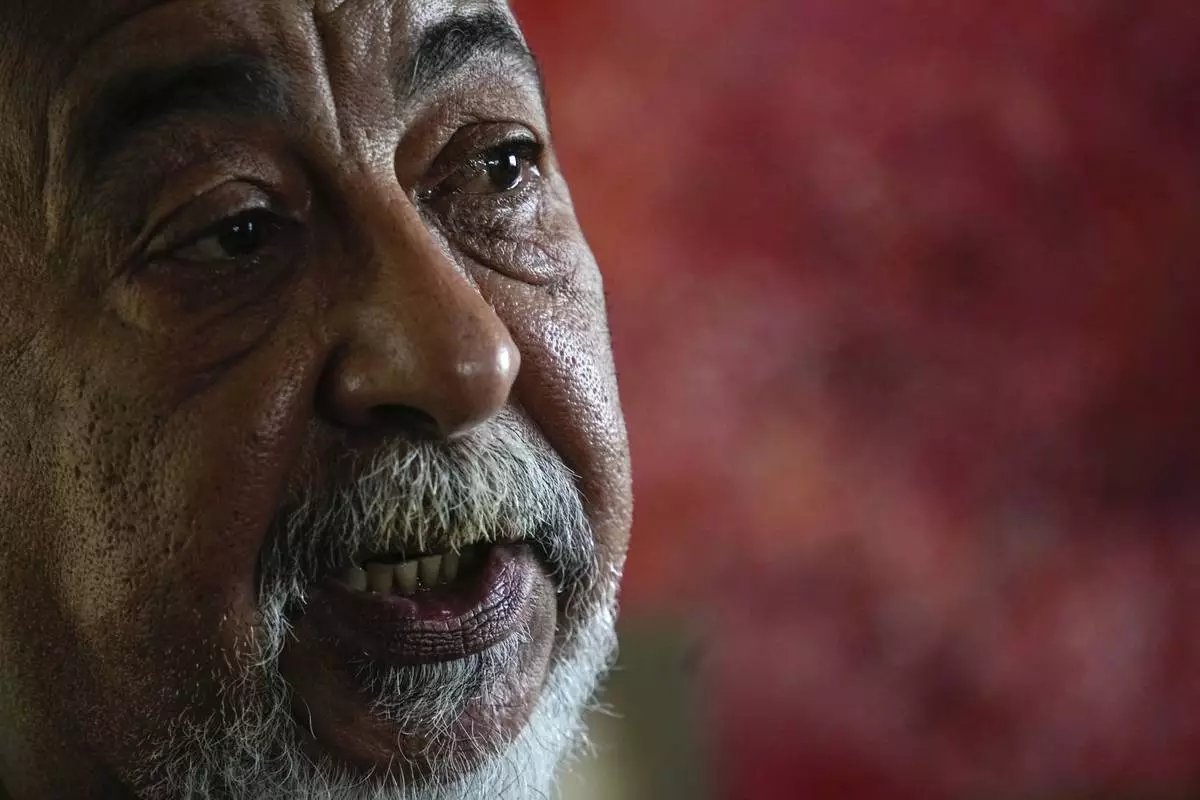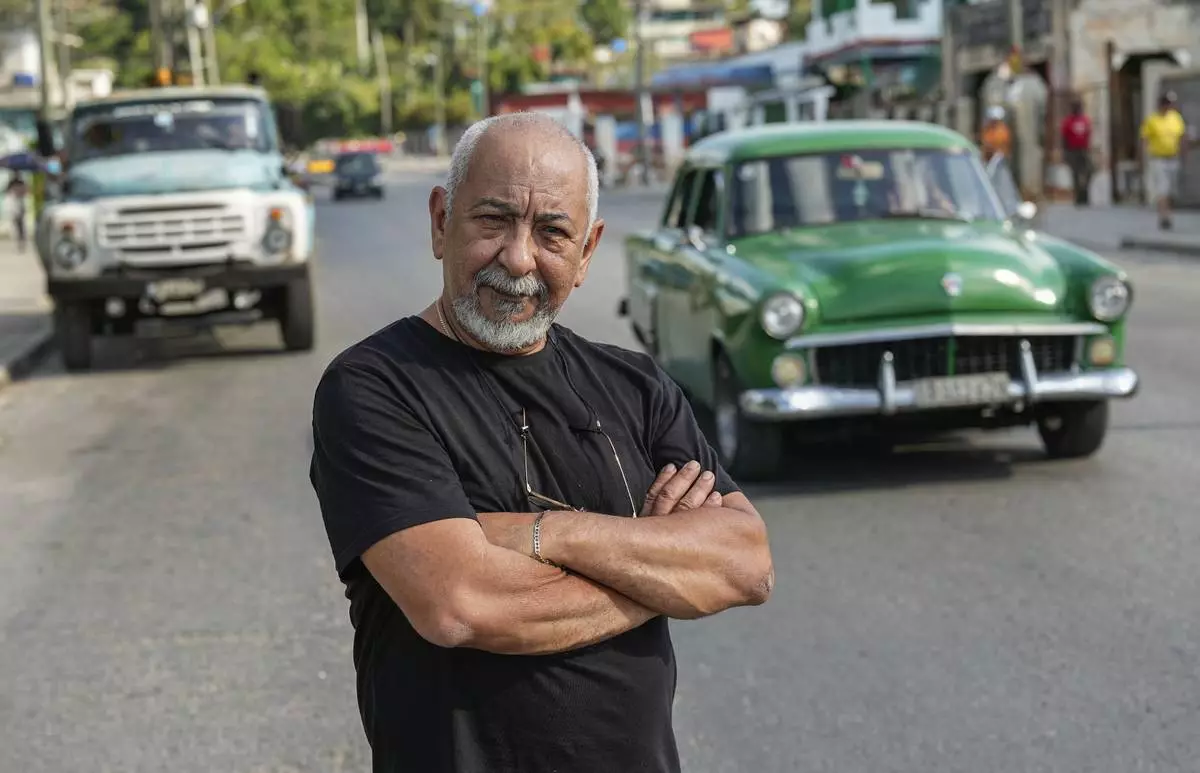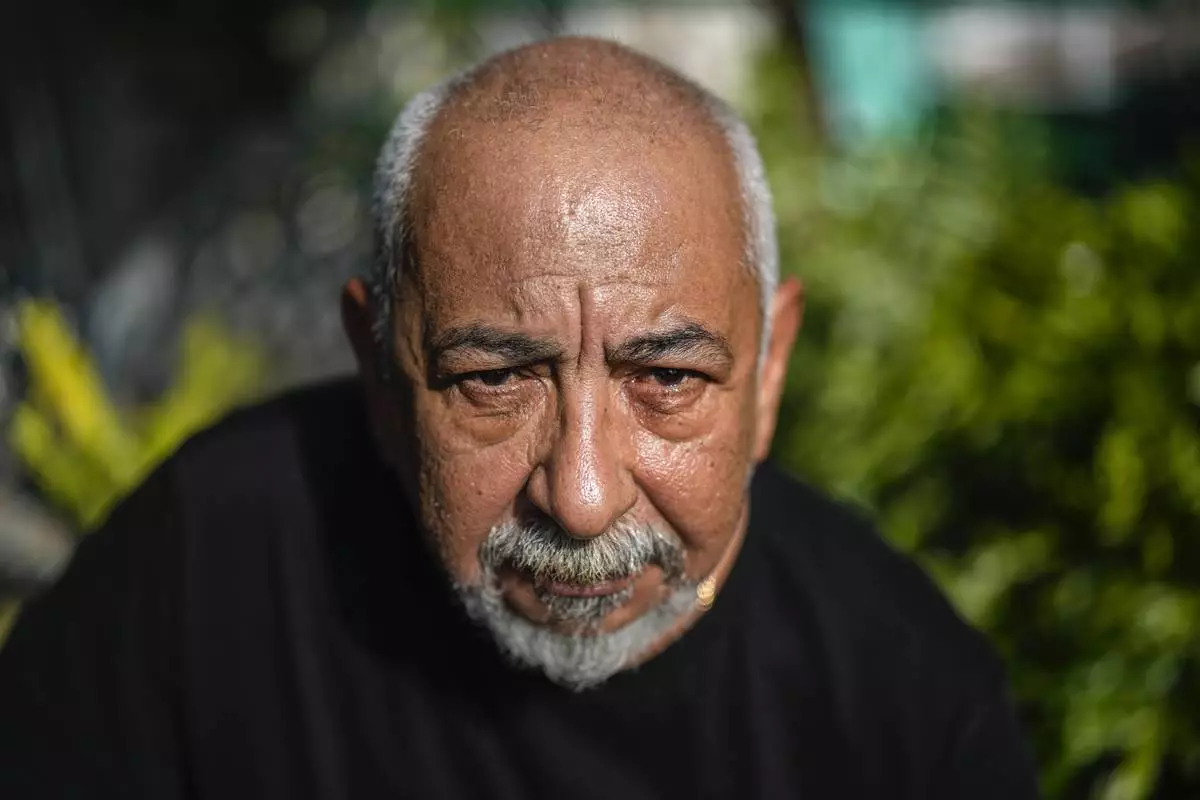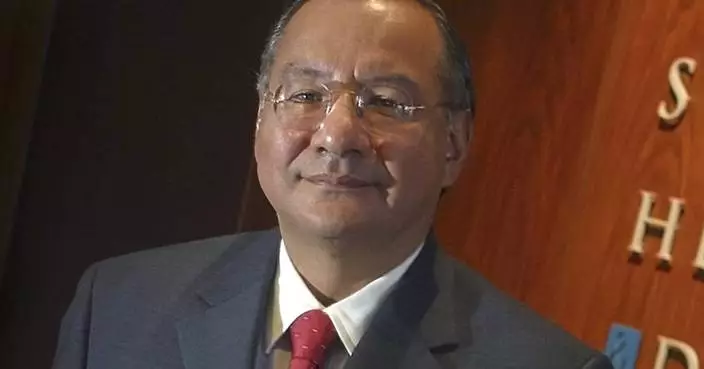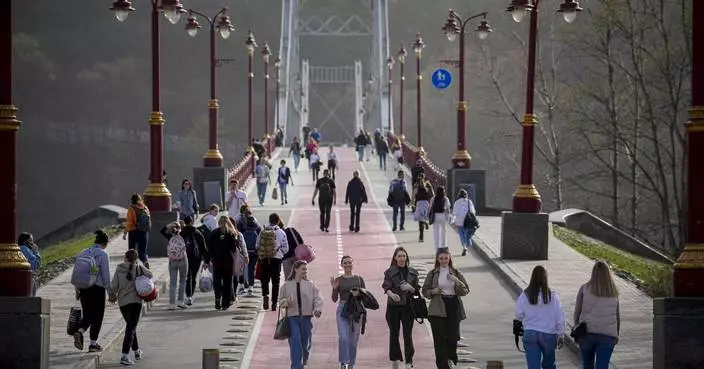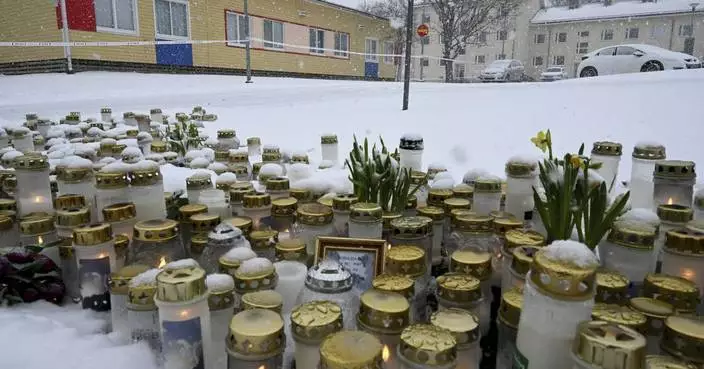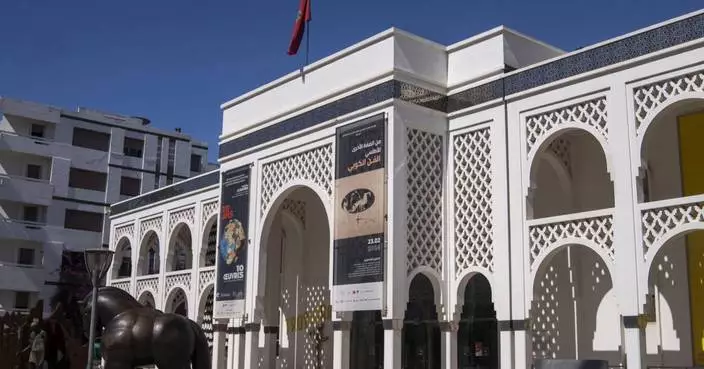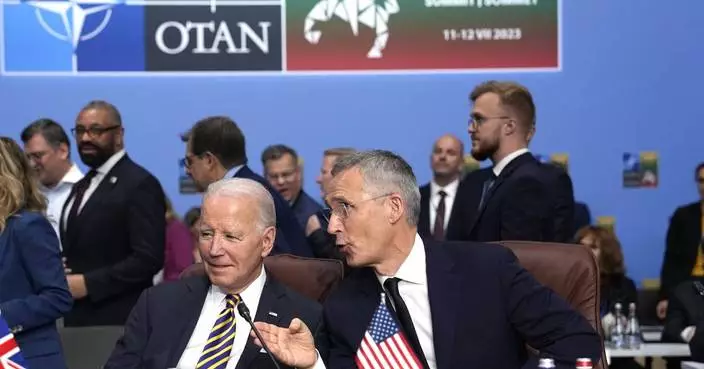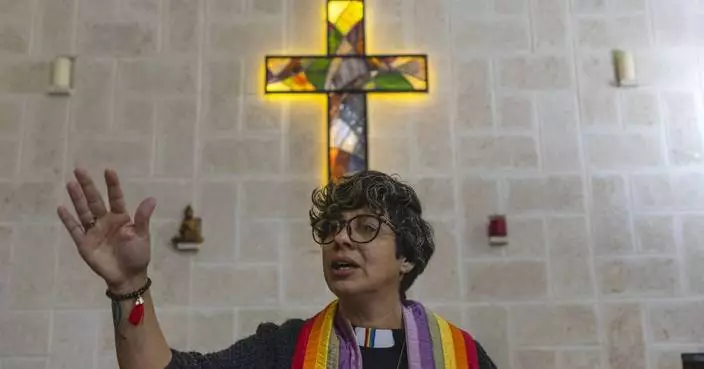Raul Castro seemed rattled.
The Cuban president sent for the top American envoy in the country to address grave concerns about a spate of U.S. diplomats harmed in Havana. There was talk of futuristic "sonic attacks" and the subtle threat of repercussions by the United States, until recently Cuba's sworn enemy.
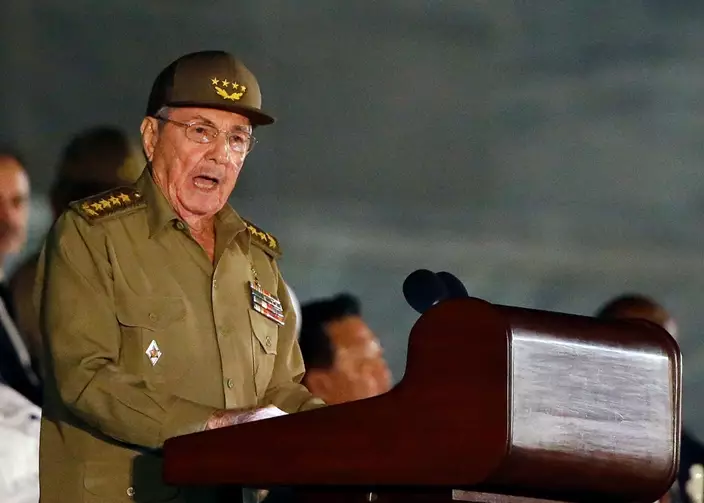
FILE - In this Nov. 29, 2016, file photo, Cuba President Raul Castro speaks during a rally in Havana, Cuba. Raul Castro appeared as alarmed as the Americans. The United States, his nation’s sworn enemy until recently, was demanding urgent answers about a spate of U.S. diplomats harmed in Havana.(AP Photo/Ricardo Mazalan, File)
The way Castro responded surprised Washington, several U.S. officials familiar with the exchange told The Associated Press.
In a rare face-to-face conversation, Castro told U.S. diplomat Jeffrey DeLaurentis that he was equally baffled, and concerned. Predictably, Castro denied any responsibility. But U.S. officials were caught off guard by the way he addressed the matter, devoid of the indignant, how-dare-you-accuse-us attitude the U.S. had come to expect from Cuba's leaders.
The Cubans even offered to let the FBI come down to Havana to investigate. Though U.S.-Cuban cooperation has improved recently — there was a joint "law enforcement dialogue" Friday in Washington — this level of access was extraordinary.
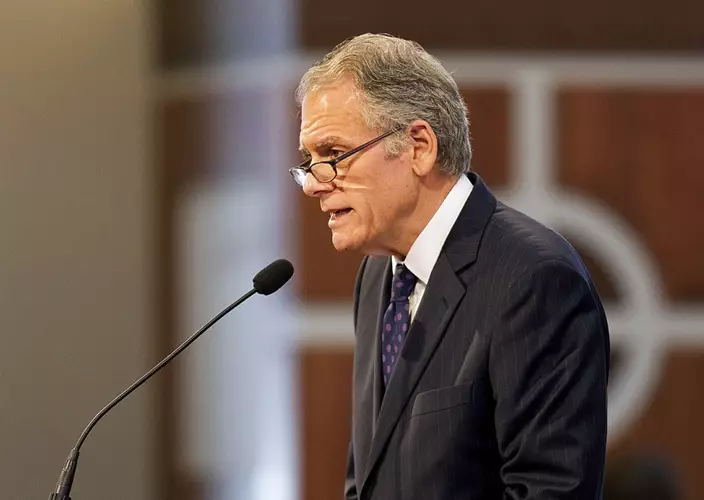
FILE - In this Jan. 18, 2016, file photo Jeffrey DeLaurentis, then-Charge d'Affaires to the U.S. Embassy in Havana, Cuba, speaks in Atlanta. Raul Castro appeared as alarmed as the Americans. (AP Photo/David Goldman, File)
"Some countries don't want any more FBI agents in their country than they have to — and that number could be zero," said Leo Taddeo, a retired FBI supervisor who served abroad. Cuba is in that group.
The list of confirmed American victims was much shorter on Feb. 17, when the U.S. first complained to Cuba. Today, the number of "medically confirmed" cases stands at 21 — plus several Canadians. Some Americans have permanent hearing loss or mild brain injury. The developments have frightened Havana's tight-knit diplomatic community.
At least one other nation, France, has tested embassy staff for potential sonic-induced injuries, the AP has learned.
But several U.S. officials say there are real reasons to question whether Cuba perpetrated a clandestine campaign of aggression. The officials weren't authorized to discuss the ongoing investigation and demanded anonymity.
When the U.S. has accused Cuba in the past of misbehavior, such as harassing diplomats or cracking down on local dissidents, Havana has often accused Washington of making it up. This time, although Castro denied involvement, his government didn't dispute that something troubling may have gone down on Cuban soil.
Perhaps the picture was more complex? Investigators considered whether a rogue faction of Cuba's security forces had acted, possibly in combination with another country like Russia or North Korea.
Nevertheless, anger is rising in Washington. On Friday, five Republican senators wrote to Secretary of State Rex Tillerson urging him to kick all Cuban diplomats out of the United States and close America's newly re-established embassy in Havana.
"Cuba's neglect of its duty to protect our diplomats and their families cannot go unchallenged," said the lawmakers, who included Sen. Marco Rubio of Florida, a prominent Cuban-American, and the No. 2 Senate Republican, John Cornyn of Texas.
___
For decades, Cuba and the U.S. harassed each other's diplomats. The Cubans might break into homes to rearrange furniture or leave feces unflushed in a toilet. The Americans might conduct obvious break-ins and traffic stops, puncture tires or break headlights.
Yet those pranks were primarily to pester, not to harm.
What U.S. diplomats started reporting last November was altogether different.
Diplomats and their families were getting sick. Some described bizarre, unexplained sounds, including grinding and high-pitched ringing. Victims even recounted how they could walk in and out of what seemed like powerful beams of sound that hit only certain rooms or even only parts of rooms, the AP reported this week.
At the time, Washington and Havana were in cooperation mode, working feverishly to lock in progress on everything from internet access to immigration rules before Barack Obama's presidency ended. Donald Trump's surprise election win on Nov. 8 meant the U.S. would soon be led by a president who'd threatened to reverse the rapprochement.
As America awaited an unpredictable new administration, Cuba faced a pivotal moment, too.
Fidel Castro died on Nov. 25. The revolutionary had reigned for nearly a half-century before ceding power to his brother, Raul, in his ailing last years. It was no secret in Cuba that Fidel, along with some supporters in the government, were uneasy about Raul Castro's opening with the U.S.
"There is a struggle going on for the soul of their revolution," said Michael Parmly, who headed the U.S. diplomatic post in Havana from 2005 to 2008. "It's entirely possible there are rogue elements."
___
When the first diplomats came forward with their inexplicable episodes and symptoms, the U.S. didn't connect the dots. It took weeks before embassy officials pieced together "clusters" of incidents, and multiple victims with confirmed health damage.
By the time Obama left the White House on Jan. 20, talk of mysterious maladies had reached some officials in Washington. Word of sonic attacks hadn't reached the top echelons of the White House or U.S. State Department, three former U.S. officials told the AP.
As Trump took office, a clearer picture started to emerge.
On Feb. 17, the U.S. complained to Cuba's embassy in Washington and its foreign ministry in Havana.
Soon came Castro, seeking out DeLaurentis directly.
The attacks halted for a time. But several U.S. officials said it wasn't clear why.
It wasn't long before the incidents started again, as mysteriously as they'd stopped.
___
Then the Canadians got hit.
Between March and May, between five and 10 households were hit with symptoms including nausea, headaches and nosebleeds, said a Canadian official with knowledge of his country's investigation.
Then those attacks, too, ended.
What culprit would want to attack both the U.S. and its northern neighbor?
Cuba has no obvious grievances with Canada. The two countries have close ties. But perhaps Canadians were targeted to muddle the motive and throw investigators off the trail, another possibility U.S. authorities haven't eliminated.
The Canadians tested some of their staff in Havana and recalled others home temporarily, the Canadian official said.
Searching for its own answers, the U.S. Embassy conducted medical tests on staffers. Many were sent to the University of Miami for further examination. The State Department consulted with doctors at Johns Hopkins University and the University of Pennsylvania. The U.S. encouraged those institutions to keep what they knew private.
___
In Havana's diplomatic circles, anxiety spread. The French Embassy tested employees after a staff member raised health concerns, according to a French diplomat familiar with the matter. False alarm; the tests turned up no signs of damage consistent with a sonic attack.
The FBI traveled to Havana and swept some of the rooms where attacks were reported — a list that included homes and at least one hotel: the Spanish-run Hotel Capri, where visiting U.S. officials occasionally stay. The Royal Canadian Mounted Police flew down, too. Neither law enforcement agency found any sonic device, several officials told the AP.
By May 23, the U.S. still had no answers. But something had to be done. The Trump administration expelled two Cuban diplomats from Washington to protest the communist government's failure to protect the safety of American diplomats.
Neither country disclosed the expulsion at the time. Cuba didn't retaliate.
The next month, Trump imposed some barriers to travel between the former Cold War foes. But there was no hint it was to punish Castro's government for the attacks. Trump left much of Obama's broader detente intact, including the two nations' re-opened embassies.
___
The diplomats suffered in private, until Aug. 9.
News reports finally prompted the State Department to publicly acknowledge "incidents which have caused a variety of physical symptoms" and were still under investigation. The AP learned they included concentration problems and even trouble recalling commonplace words.
Two weeks later, the U.S. announced at least 16 Americans showed symptoms. At that point, the State Department said the incidents were "not ongoing."
Still, the tally continued to rise — first to 19 victims, and then this week to 21.
In the meantime, the State Department had to withdraw its assurance the attacks had long ceased. There had been another incident, on Aug. 21.
"The reality is, we don't know who or what has caused this," State Department spokeswoman Heather Nauert said Thursday. "And that's why the investigation is underway."



